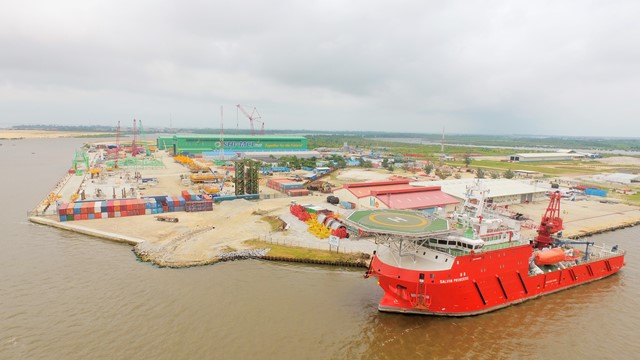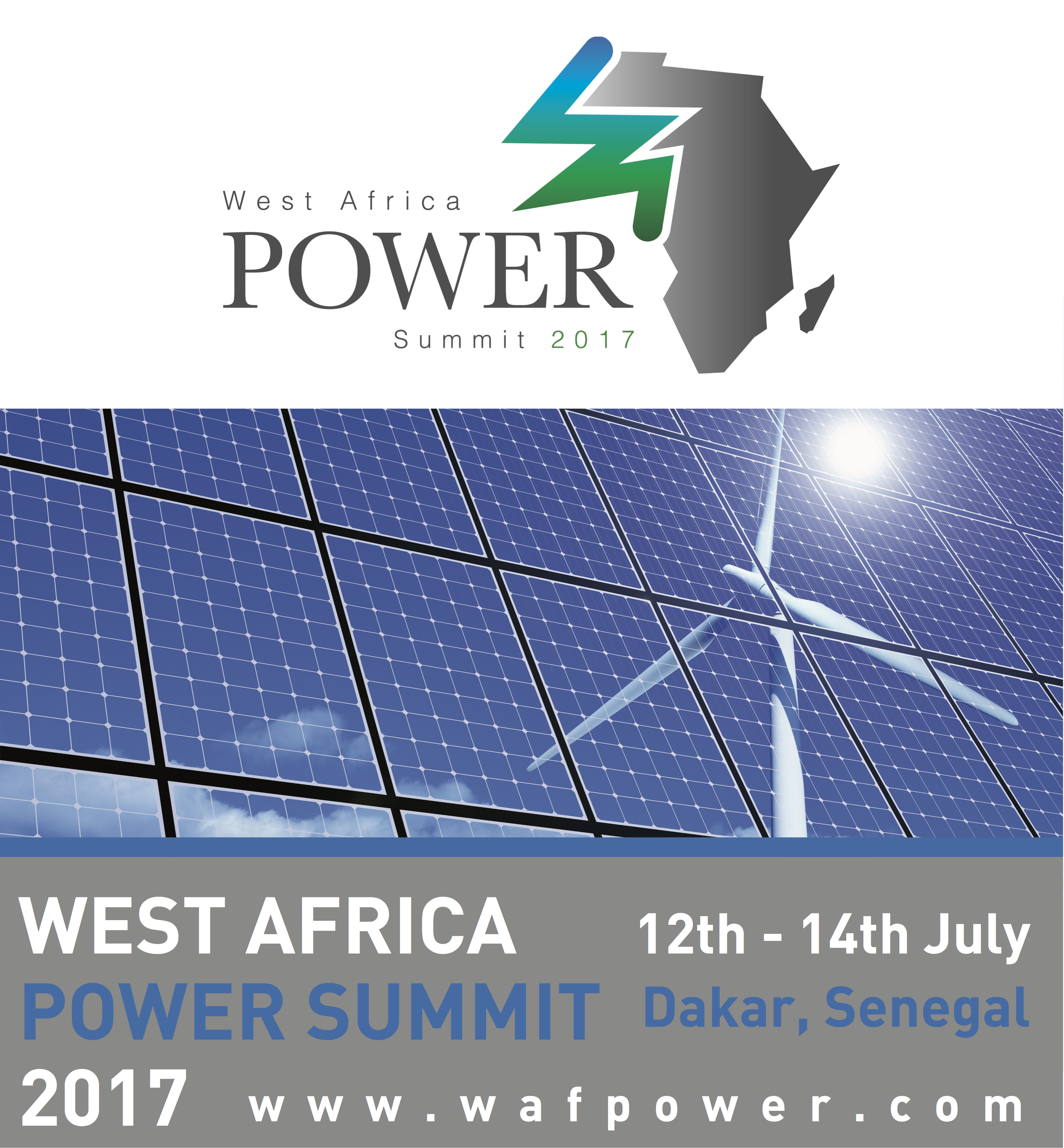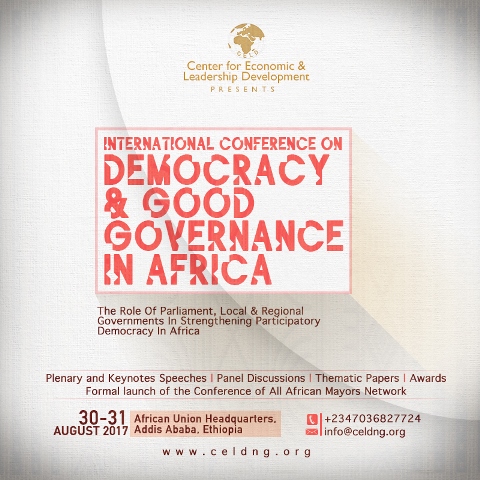Unlike in time past when nearly every key industry was dominated by foreign-owned or managed company, Nigeria’s indigenous companies have in recent years taken the centre stage in the country’s oil and gas sector, with a commitment to human capital development, training and creating jobs for local labour.
Lagos Deep Offshore Logistics Base (LADOL), which was recently named one of the Top 30 Most-Impactful Oil & Gas Companies in Africa, is a 100% indigenous company, a wholly privately financed logistics base and shipyard in Nigeria, which has in the last two years successfully built West Africa’s largest shipyard, with the heaviest crane capacity in the region, which will create 50, 000 direct and indirect jobs.
The Managing Director of LADOL, Dr. Amy Jadesimi, in an exclusive interview with African Leadership Magazine’s Ehis Ayere, discussed some of the company’s significant investments in Nigeria, commitment to local content development, as well as the company’s other impact investment programmes. Excerpts:
For the past 11 Years, LADOL has been providing integrated Logistics solutions to its clients in Nigeria and West Africa at large; tell us about some of the successes of the company in the last couple of Years?
As the only 100% indigenous Nigerian facility and wholly privately financed logistics base and shipyard in Nigeria, LADOL has broken a lot of new ground.
Our deep offshore logistics base is a streamlined fully integrated logistics facility with a unique operational model focused on specifically servicing the offshore and deep offshore market in Nigeria.
This model is possible because LADOL has invested USD $150 million building its logistics facilities ahead of the market. As the base operator, LADOL invested in building all the facilities needed for offshore support, which it provides 24 / 7. Such facilities are normally paid for by the oil companies and their service providers and they range from specialised quayside workshops, warehouses and a mud plant (to support drilling activities) to fully serviced offices and hotel accommodation. This fully integrated, streamlined logistics solution ensures that services are shared and provided at international standards to a range of clients in the most efficient manner. This also dramatically lowers the cost to oil and gas companies as they have minimal overheads and no need for capital expenditure investment. Additionally, we are targeting Nigerian companies who can set and service the petroleum sector at a much lower cost from LADOL – increasing real local content.
Overall, LADOL will save offshore and deep offshore oil and gas companies at least 50% on their costs and more than double the profitability of offshore blocks in Nigeria, making Nigeria an attractive investment destination.
In addition, over the past two years, we’ve successfully built West Africa’s largest shipyard with the heaviest crane capacity in the region, which will create 50,000 direct and indirect jobs. This yard is a game-changer for our manufacturing sector, taking us from a country that exports jobs and dollars to being on a path to being the foremost manufacturing and engineering hub for West Africa.
Most recently, we completed a number of the topside modules (processing equipment) for the French oil major Total’s Floating Production Storage and Offloading (‘FPSO’) vessel which will service the Egina deep offshore field near Lagos. The FPSO is a multi-billion-dollar project that has set new standards for local content in Nigeria. We’re extremely proud to have worked on this project for Total with Samsung Heavy Industries and other yards, and we’re looking forward to the FPSO arriving from South Korea in the autumn for final integration at LADOL.
These achievements drive growth in LADOL and in the Nigerian economy – we hope the new market opportunities we have created will also attract more indigenous private investors to make long-term investments in infrastructure, facilities and people.

LADOL recently announced that it would be investing in a 50MW Gas-powered power plant; what is the position of this investment?
LADOL’s investment in a 50MW gas-fired power plant is a continuation of our plans to create a self-sufficient sustainable industrial free zone, equipped with comprehensive amenities, facilities and services to enable manufacturing and engineering to take place in Nigeria to support a wide range of sectors in the West African region. The plant is being built in phases, with the first phase already underway.
The plant and our specialised infrastructure, e.g. wide heavy quayside and roads, are designed to create an ecosystem from which industrial businesses can operate and immediately service one of the largest emerging markets in the world.
This vision for self-sufficiency is integral to our business model of investing in transformational, flexible infrastructure to enhance Nigeria’s industrial capacity and ultimately lower the cost of doing business in-country. With easy access to skilled local labour, world-class equipment, facilities and services, and uninterrupted electricity generated onsite, we can make working from Nigeria attractive again. Investments like this from the private sector are necessary for adding sustainable value to our local economy.
The Local Content Development Act 2010, framed within the context of the growth of Nigerian entrepreneurship and the domestication of foreign currency is envisioned to tackle the problem of insufficient value addition to the Nigerian economy, occasioned by the near lack of local capacity/capability, especially in the petroleum industry. Experts have noted that the local content law in the oil and gas sector of the country has brought a tremendous change in the business landscape. In line with the focus of LADOL, kindly share with us, your company’s commitment and contributions towards maximising Nigerian content, for job creation and technology transfer?
LADOL hosts the single largest capacity development since the passing of the Local Content Development Act. This development was made possible by LADOL’s long track record of infrastructure investment and our founders’ long-term vision.
LADOL is a passionate advocate of REAL local content because it’s critical to Nigeria’s development, both economically and socially. To achieve G20 status we must encourage and enable the local private sector to invest in capacity so we can sustainably manufacture more locally and train / hire our local workforce, creating hundreds of thousands of new local jobs. Such initiatives are at the core of LADOL’s business strategy. It is estimated that the shipyard in LADOL will, directly and indirectly, employ 50,000 people in the next decade.
Occasioned by the drop in the world price of crude oil 2 years ago, most companies have experienced layoffs and project delays, and have had to make deep cuts, amounting to as much as 49% of spending on exploration and production, or $230bn, compared to 2014 levels, according to the Wood Mackenzie study, with a particular bearing on Africa’s upstream sector. What are your experiences with the drop in the price?
LADOL’s value proposition to the petroleum sector for the past decade has rested on the fact that operating out of LADOL will reduce the costs of offshore and deep offshore oil and gas exploration and production. Therefore, counterintuitively, the re-setting of the oil price resulted in oil companies seeking to minimise costs, which in turn has increased demand for LADOL’s services.
Given that international oil companies are long-term investors, they are more acknowledging of the fact that employing local labour, manufacturing locally, working with local companies along the supply chain and operating locally (and therefore closer to project sites) can significantly lower their expenses.
As a result, the IOCs doing or interested in doing business in Nigeria’s deep offshore sector are all looking at LADOL, as it’s the only logistics base in the country that can offer both a fully integrated solution and the 50% cost savings needed to justify investing in Nigeria over other countries.
LADOL and the other companies creating real local content will increasingly attract companies eager to tap into one of Africa’s largest economies, even when markets aren’t at peak performance.
How would you describe doing business in Nigeria today, looking at the opportunities and challenges?
Nigeria is undoubtedly one of the most exciting places to do business. The significance of the Nigerian economy, backed up by its demographics, in regional, continental and world affairs, means established brands and start-ups want to do business here. The opportunities are limitless; Nigeria has a pro-business government intent on encouraging competition and private sector investment, a youthful educated population and an entrepreneurial spirit that it can leverage to tackle any challenges and fill gaps in the market.
However, access to finance for SMEs are just some of the barriers to market entry many aspiring entrepreneurs face. Business leaders must continue to collaborate with Government as well as each other to establish a level playing field that is accessible to more Nigerians. We must remain committed to building an inclusive economy from within our borders, within our legal system and with our powerful citizenry; by force of our success, the international community will have to take notice.
In our interaction with Mr. Mo Dewji, a Tanzanian billionaire businessman, he said success should be about the positive impact and influence one has in one’s community. As an organisation, how do you give back to your host community?
LADOL is committed to creating a free zone that is sustainable over the long term by adding value to the local economy through investment in transformational, flexible infrastructure that can be adapted to many industrial projects; human capital development to upskill, train and create jobs for local labour; and localising industrial supply chains.
As part of this strategy, LADOL is building an upskilling Academy to provide a range of education opportunities from entry-level training through continuing education programmes for executives in the oil and gas industry. We want to help disseminate international best practice standards so more Nigerians are fit to take up skilled jobs at home, reversing our ‘brain drain’ and enhancing the global competitiveness of our workforce. Construction on the upskilling academy will begin in the second half of 2017.
We’re also now a founding patron of Prince’s Trust International, the global offshoot of Prince’s Trust established in 2015 which seeks to help disadvantaged young people around the world into education, training and work. So much of our country’s future is dependent on how we support our youth, we must invest in them now.


